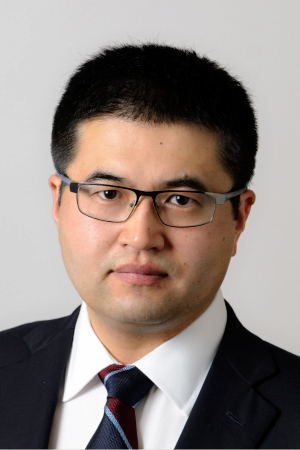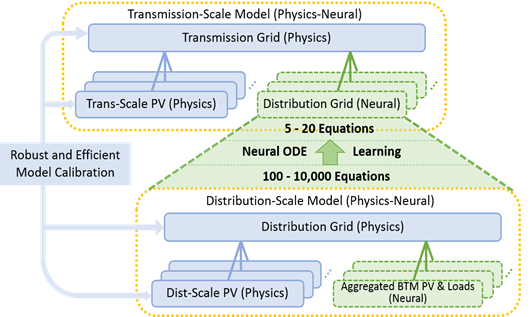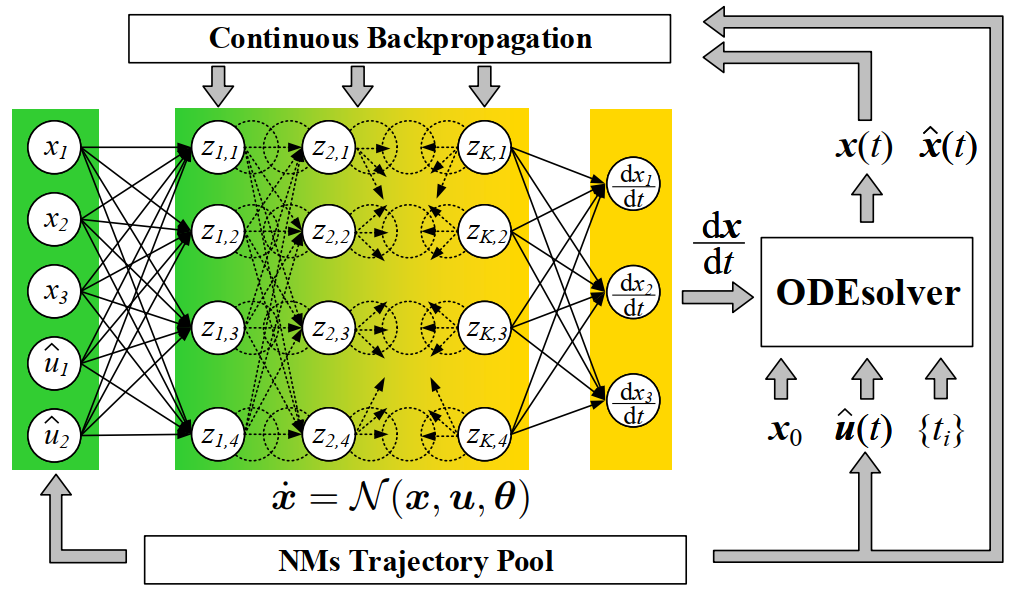Taking the Pulse of Power Systems utilizing Photovoltaic Generated Electricity
   |
| Left to right: Professor Peng Zhang, Professor Xin Wang, and Professor Yue Zhao |
Photovoltaic electric power generation is becoming more and more common and its use is likely to grow as time goes on. However operators of electric power systems with a large photovoltaic component have a hard time predicting the behavior of the power systems. There is an urgent need for effective and accurate transient (i.e. short time frame) and dynamic (as it happens) simulation methods for power systems with high photovoltaic penetration. A team involving three Stony Brook faculty and a post-doc led by Prof. Peng Zhang recently received a major US Dept. of Energy award to fulfill this need.
The Stony Brook Solar Plus project uniquely employs physics-aware machine learning techniques to address power system modeling and analysis problems in renewable-dominated power systems. The team has found that the learning-based modeling and physics-informed dynamic analysis can achieve surprisingly high-fidelity results compared with the traditional physics model-based models and results, and exhibits superior robustness and generalization ability. The learning-based algorithms will also achieve highly efficient power system analytics with orders of magnitude (i.e. many factors of ten) computational speedup.
This project will significantly promote power system modeling with massive photovoltaic generation and accelerate transient simulations of such power systems. The models and tools will enable utilities and ISOs to perform highly efficient and accurate power system analytics, including dynamic analysis, transient stability analysis, contingency screening, etc.
 |
| Ultra-Scalable PV Modeling. Figure courtesy of Yuzhang Lin, Xiangqi Zhu, and the Stony Brook team. |
This Solar Plus project addresses the fundamental operational obstacles in power systems with high photovoltaic integrations. The proposed solutions will address the DOE’s Solar Energy Technologies Office (SETO)’s mission of decarbonizing the electricity system by 2035.
The Stony Brook team consists of principal investigator Prof. Peng Zhang and co-principal investigators Prof. Yue Zhao and Prof. Xin Wang and post-doc Yifan Zhou. The team has extensive expertise, resources, and experience needed for the transient/dynamic modeling and simulation of photovoltaic systems and large power grids, physics-aware machine learning, etc. The team has also received several large federal grants (e.g., AI-Grid, a 5M NSF project) to work on dynamic, stability and control of renewable-dominated power systems using AI techniques, which gives a solid foundation for this project.

Other participating institutions on the Solar Plus project are Brookhaven National Laboratory (BNL), National Renewable Energy Laboratory (NREL), University of Massachusetts-Lowell (UML), University of Connecticut (UConn), Eversource Energy, New York Power Authority (NYPA), National Grid, and PSEG Long Island (PSEG LI).
Note that SBU and BNL have collaborated on two DOE projects on grid stability, analytics, and cyber security. SBU, and UML, UConn, Eversource Energy, and NREL are collaborative partners on multiple projects.
